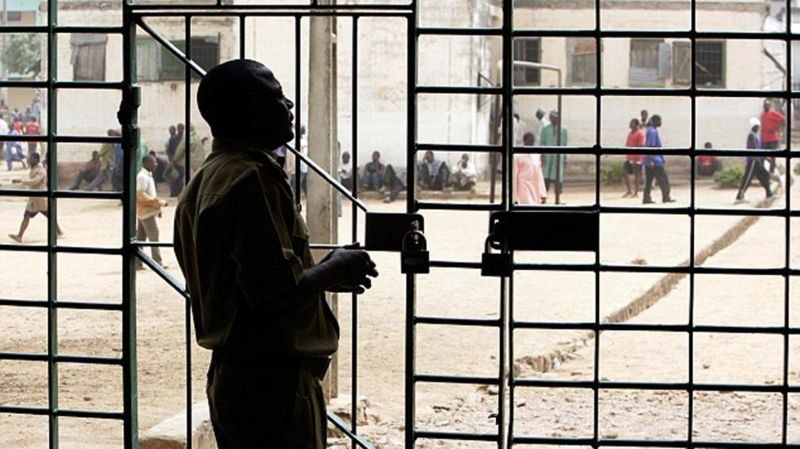NCoS probes poor feeding allegation in Cross River correction centre
 The Nigeria Correctional Service has said the alleged poor feeding at the Calabar custodial centre is being investigated and does not reflect the service’s commitment to inmates’ welfare.
The Nigeria Correctional Service has said the alleged poor feeding at the Calabar custodial centre is being investigated and does not reflect the service’s commitment to inmates’ welfare.
The Service Public Relations Officer, Abubakar Umar, said this in an interview with the News Agency of Nigeria on Tuesday in Abuja.
The Minister of Interior, Olubunmi Tunji-Ojo, had ordered an investigation into the feeding conditions of inmates at the Afokang Custodial Centre in Calabar, Cross River State.
The directive followed a viral video alleging that inmates at the custodial centre were being subjected to inhuman treatment, including being served poorly cooked beans as breakfast.
Reacting, Umar reiterated the NCoS’ commitment to reform, rehabilitate and care for inmates.
He emphasised that it was focused on correcting those in conflict with the law through behaviour modification and skill acquisition programmes.
“The name change connotes a philosophy of correction to train the mind of those in our custody on behaviour modification. The new global standard goes beyond just addressing the viral video allegedly showcasing subpar food in our custodial centres.
“It also emphasises the importance of upholding the dignity of inmates in our care by ensuring they receive adequate medical attention and holistic care.
“The allegation is being looked into as directed by the Minister of Interior, and until then, we cannot confirm or deny that the trending video is from one of our custodial centres.
“I see that as a kind of misgiving as the current administration is doing so much in ensuring that internal security of all citizens going about their normal businesses are assured, and furthermore, the responsibility of the NCoS is to see that our mandate is achieved through reformation and rehabilitation.
“The allegation is a serious one that the Federal Government has frowned at but until the committee set up to actually investigate such allegations, the service cannot speak much on it now,” he said.
He said that it inherited a colonial-era system and was actively working to modernise and transform it to align with contemporary penal administration standards and meet society’s evolving needs.
He added, “We make bold to say that for several years now, we have never had internal insurrection between our system. That is to say, whoever must have made that statement is incorrect.
“This is because, first, for you to be able to reform someone, you must gain his or her trust and have a serene environment to care for such a person.“You must be able to feed the person not to the way he or she actually wants but to a reasonable level of care to be given to such person.
“So, as such, we have been able to do that, and I want to say that people should commend the NCoS for the frugal use of financial resources at their disposal,” he said.
Umar said that the feeding allowance for inmates undergoes constant review and revision.
“As part of our commitment to the welfare of all individuals, including those in conflict with the law, the current government has taken the first step in increasing the feeding allowance for inmates.
“This initial increase will be followed by a thorough assessment of the inmates’ dietary requirements, with further adjustments to the feeding allowance made as necessary to guarantee their health and well-being.
“It is not a hidden fact that the amount used to feed our inmates is inadequate, but recently, the Government has actually reviewed the amount for feeding inmates with 50 per cent.
“This means we are not only going to have an improved feeding system in our custodial centres, but we are also going to augment it with our products from our farm centre across the Federation.”
Umar emphasised that it had significantly broadened its reformation and rehabilitation initiatives within the custodial centres, providing inmates with valuable skills acquisition programs, including agricultural training, to empower them for successful reintegration into society.
“We also offer farming initiatives, recognising that acquiring agricultural skills will greatly benefit inmates upon their release, enhancing their reintegration into society and empowering them to become self-sufficient individuals,” he said.
He said that the minister took notice of the feeding issue and had been instrumental in driving reforms.
“That is why, upon his assumption in office, he pushed for the upgrade, renovation and even construction of new custodial centres.
“It is not a hidden fact today that, if you go to Kuje custodial centre, it is a prototype of what will be a replica in other state custodial centres in the federation.
“This is to show that the government means business on the issue of internal security vis-a-vis the issue of reforming those who are in our custody,” he added.













